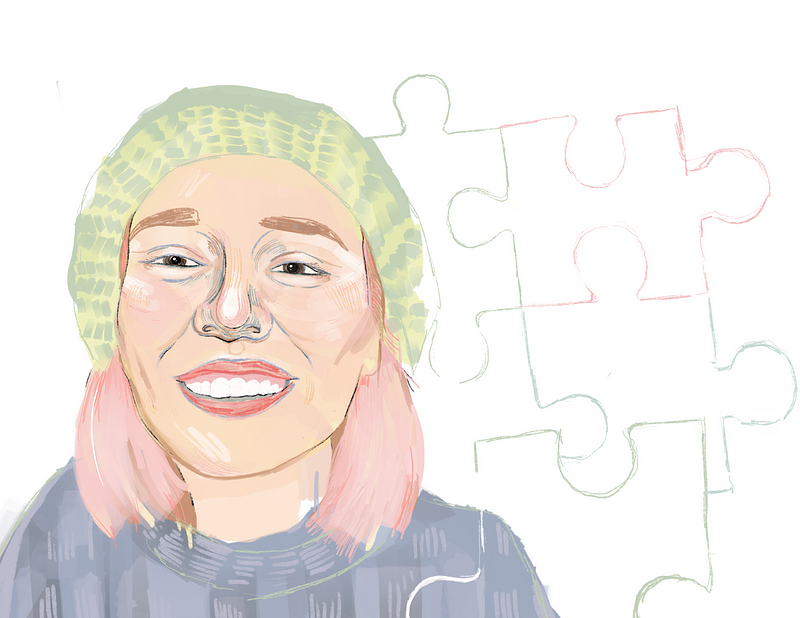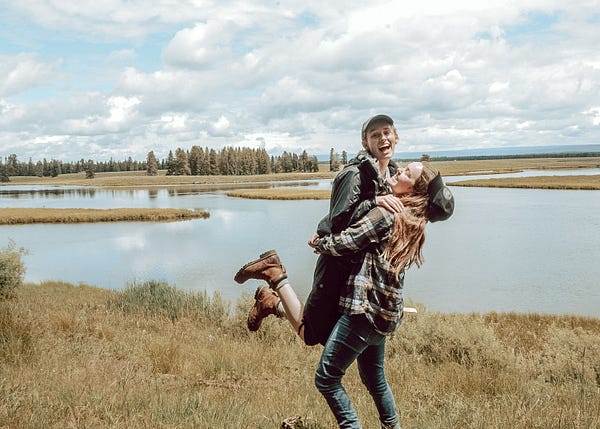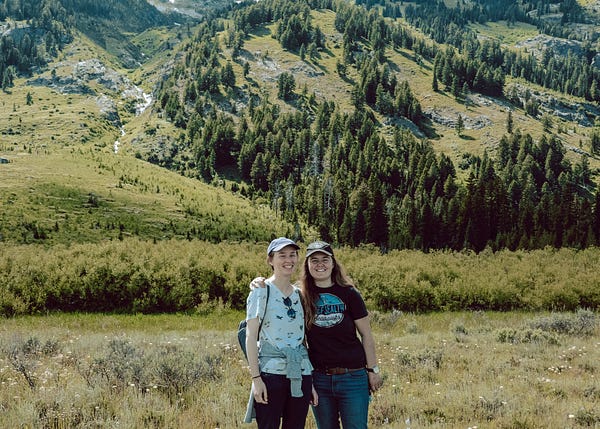The Last to Know

What the Lesbian Masterdoc taught me about myself.
Story by Sophia Beach
M y friend Isabel was driving her gray 2002 Toyota Corolla on the Alaskan Way Viaduct while I sat and watched the columns fly by from the passenger seat. It was the middle of my senior year in high school, following a breakup from my first serious boyfriend.
Isabel had been out for years prior, and I knew she was the right person to tell.
“I think I might be gay,” I said, drowning in doubt and sinking deeper in my seat. I told her I was uncomfortable at the thought of being gay, but I never judged my friends who were. In truth, I felt comforted by their presence and had stronger connections with them than any of my straight friends.
I settled in my sunken state and reflected on how I had been active in my high school’s Gender and Sexuality Alliance for the last two years. I thought of myself as a passionate ally; in fact, I told Isabel that my ex-boyfriend would jokingly ask if I was sure I wasn’t gay. After breaking up with him, I finally had time to consider those passing remarks.
I told Isabel I wasn’t ready to address all the feelings I was having, but I eventually knew I couldn’t escape them. I desired a space of my own to address these emotions and living in my parents’ home didn’t afford me the privacy and security I needed. This all changed during my third year at Western Washington University.
One night in November 2020, one of my closest friends, Julia, texted me.
“Hey, I think that you should read this. I think some things might resonate with you.”
I opened the link and couldn’t tear my eyes away from the screen. So many things made sense all at once and I started sobbing. Everything I had put on pause two years before confronted me alone in my room. I kept thinking, “Why is this so scary?”
The link Julia sent me was the “Am I a Lesbian? Masterdoc.” It’s a publicly shared Google document curated by Angeli Luz. According to a VICE interview, Luz said the creation of the document “emerged from her own journey of self-discovery,” and she created the document as “a tool of self-reflection” for herself and others. Although it originated on Tumblr, it has been referenced in videos on both TikTok and YouTube.
I was so blinded by my internalized homophobia that I couldn’t see a way out of my own loneliness. I dated men throughout college, but I always felt like I was filling an unknown void. Men did not match the personal connection I desired.
I was imprisoned by compulsory heterosexuality. More popularly known as “comp-het,” the original term was disseminated by Adrienne Rich, a notable American poet and essayist.
Comp-het refers to the cultural expectation that women are “innately sexually oriented towards men.” The constant sexualization of women in the media reinforces the idea that any feelings we have toward men always translate to attraction.
“Doubting yourself and whether your feelings are true is a pretty big giveaway of comp-het. That’s exactly what, among other things, comp-het makes us do,” Isabel said.
The excuses I made about relationships abated my doubts. My excuses allowed me an out, so to speak. I would think, “I can’t be a lesbian because I’ve dated men before,” and “All women struggle with their sexuality.”
The document details many ways in which comp-het can be experienced. Each bullet that my eyes grazed over validated the doubts I had about my sexuality. I suddenly felt less alone in my habit of making excuses.
“I was not surprised at you telling me, but I was surprised at the extent of everything that you were going through. I felt very connected to you because of queer solidarity,” Isabel said.
Since reading the document and coming out to friends, my relationships have become stronger. We easily relate to one another in ways I couldn’t in friendships with straight friends. I can vocalize insecurities about my identity and bond with others who feel the same.


“I think the conversation could only have happened between two queer people. I know at least that I could not have had those conversations with straight friends,” Isabel said. “I think one of the best answers to comp-het, even just realizing you are gay or having sexual or romantic gay relationships, is to have gay friendships.”
I scrolled to the end of the document and turned my phone off. No longer illuminated by my phone screen, I crawled into bed knowing I just lit up my life in another way. I stared at my dark ceiling alone and smiled. I thought about how my friends waited for me to figure it out for this long — I was the last to know I was a lesbian.
